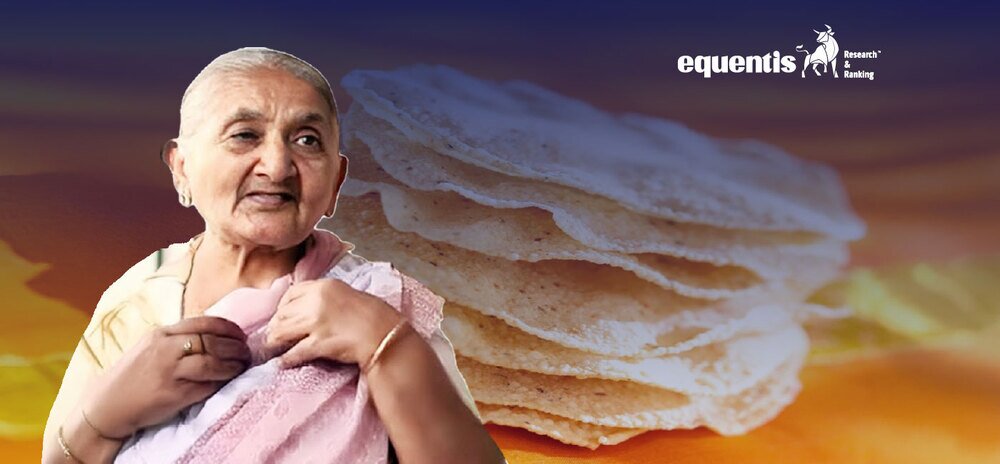A meal without papad? That’s like childhood summers without mangoes, monsoons without chai, or a wedding without dance—simply incomplete! That golden, crispy bite isn’t just food; it’s a memory in every crunch, a taste of home that brings back moments of laughter at the dinner table and the comforting aroma of a mother’s kitchen. For decades, it has added texture to meals, warmth to family traditions, and nostalgia to every bite.
Who says success needs a fancy office or a corporate plan? Sometimes, all it takes is a handful of ingredients, a pinch of determination, and a terrace full of dreamers. Here’s how a simple homemade snack became a ₹1,600 crore legacy
Are you curious to know the story? Read on
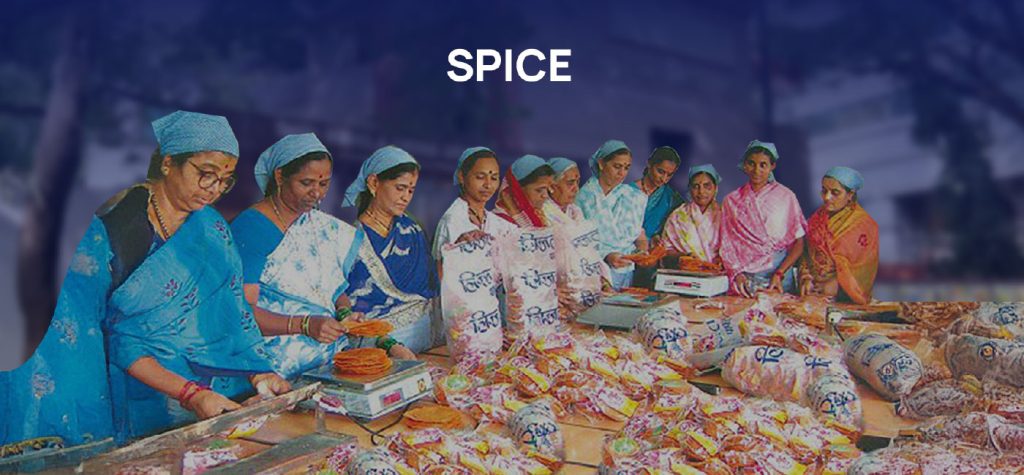
Sisterhood & A Dream
In 1959, seven women – Jaswantiben Popat, Parvatiben Thodani, Ujamben Kundalia, Banuben Tanna, Laguben Gokani, Jayaben Vithalani, and Diwaliben Lukka, with a shared vision gathered on a humble terrace in Girgaon, Mumbai.
A kind-hearted social worker, Chhaganlal Parekh, lent them ₹80, and with that modest investment, they crafted their first batch of papads—just four packets worth.
Their first sale was to a local shop, and soon, word spread. The quality spoke for itself, and more stores began stocking their papads.
They sold a little over Rs 6,000 worth of products in their first year.
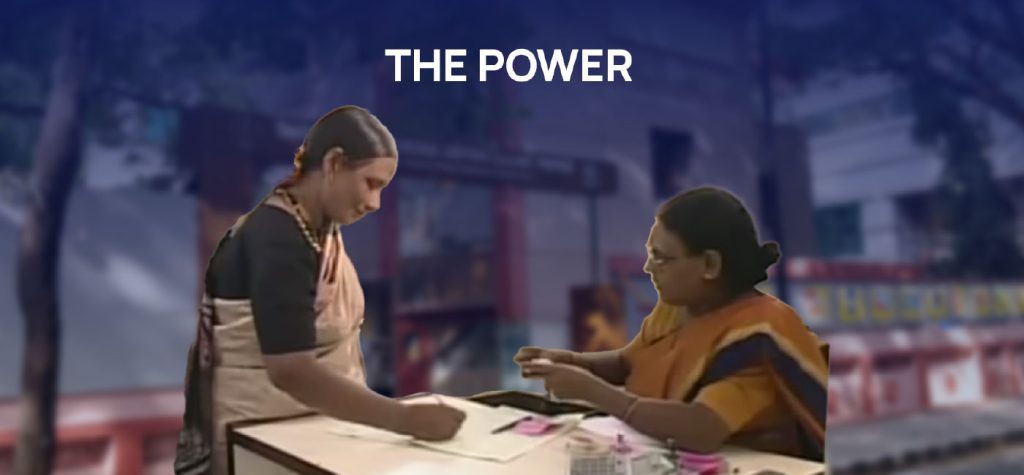
Of Collective Ownership
Lijjat’s model was radical: profit was never the primary goal, and empowerment was.
They practiced collective ownership, where every Lijjat sister, regardless of age, caste, or religion, had an equal stake in the business.
Profits and losses were shared. There was no hierarchy, no corporate overlords—only women building their future together.
This wasn’t charity. It was dignity. It was economic freedom. And it worked.
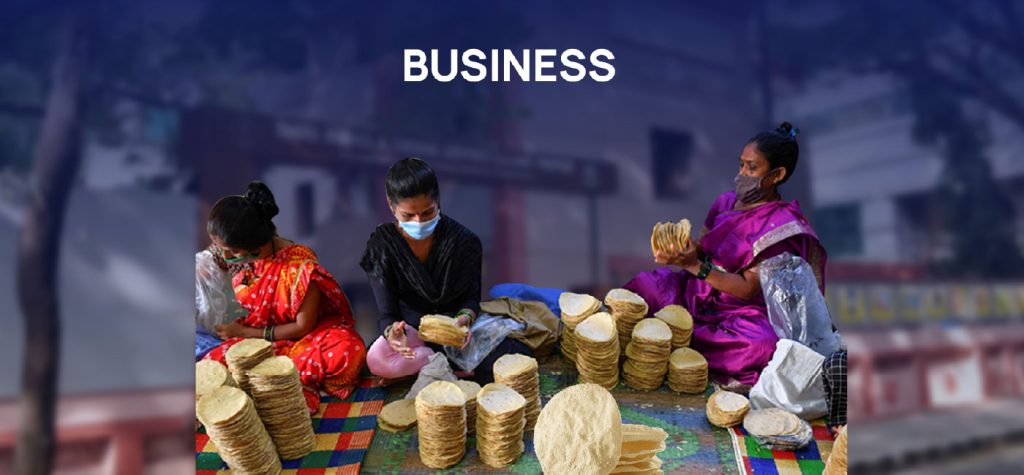
Built for Women, by Women
As demand soared, Lijjat redefined the concept of a supply chain—one designed around its sisters, not the other way around.
Instead of sprawling factories, homes became production hubs, allowing women to earn without leaving their families.
Each day, flour arrived at a central location where the dough was prepared and distributed to women who came by company buses to collect it.
Back home, they rolled, dried, and packed the papads, delivering them the next day in exchange for a fresh batch.
Surprise quality and hygiene checks ensured unwavering standards, while aluminum papad makers brought uniformity.
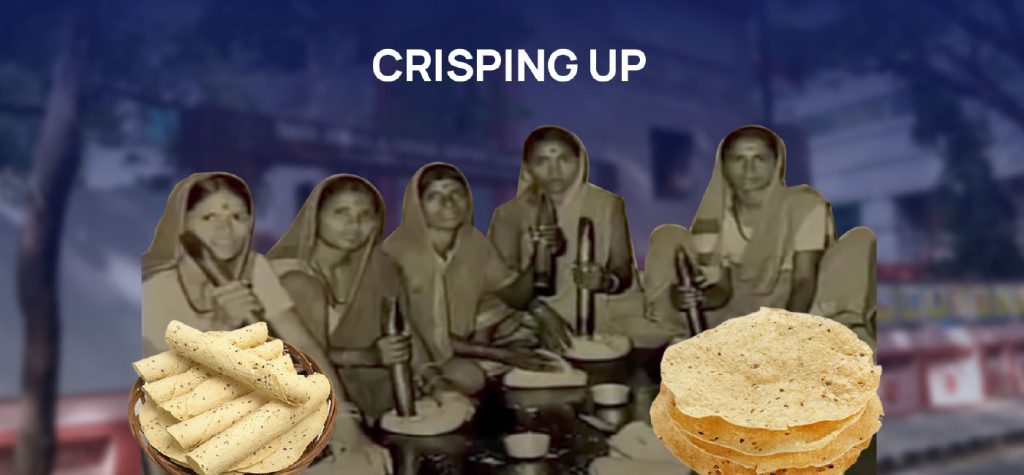
An Identity
By 1962, the growing venture needed a name. A public contest gave birth to Lijjat, meaning ‘tasty’ in Gujarati. But this was never just about taste—it was about transformation.
Shri Mahila Griha Udyog Lijjat Papad symbolized self-reliance, proving that financial independence could be achieved without compromising family responsibilities.
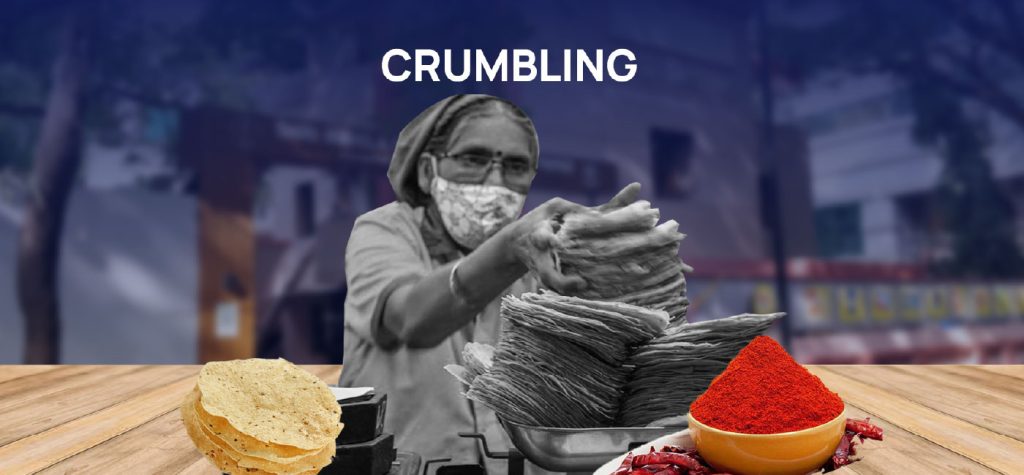
Stereotypes, One Crunch at a Time
Post-independence India wasn’t kind to women in business. The founders faced skepticism, gender biases, and financial roadblocks.
Banks refused to back a company run by housewives, so they relied on the community’s strength, reinvesting earnings and growing organically.
Even though everyone around them raised doubts about their business model, they didn’t wait for approval—they built their economy.
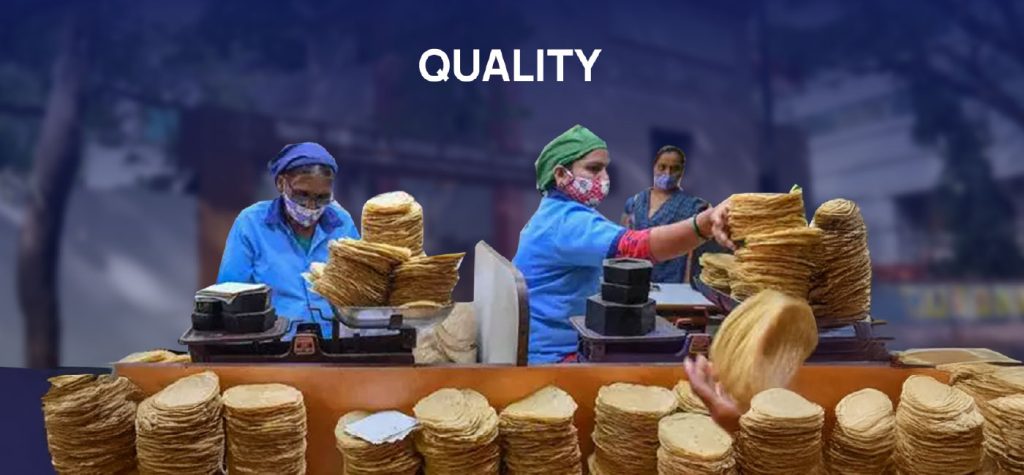
The Magic Ingredient?
Lijjat wasn’t just selling papads; they were selling trust. There are no shortcuts, no diluted recipes—just pure, traditional goodness.
While competitors dabbled in mass production, Lijjat kept things personal.
Each papad was handcrafted with a unique spice blend, preserving its authentic taste in every bite.
Lijjat Papad soon became the default choice in homes, roadside dhabas, and five-star hotels.
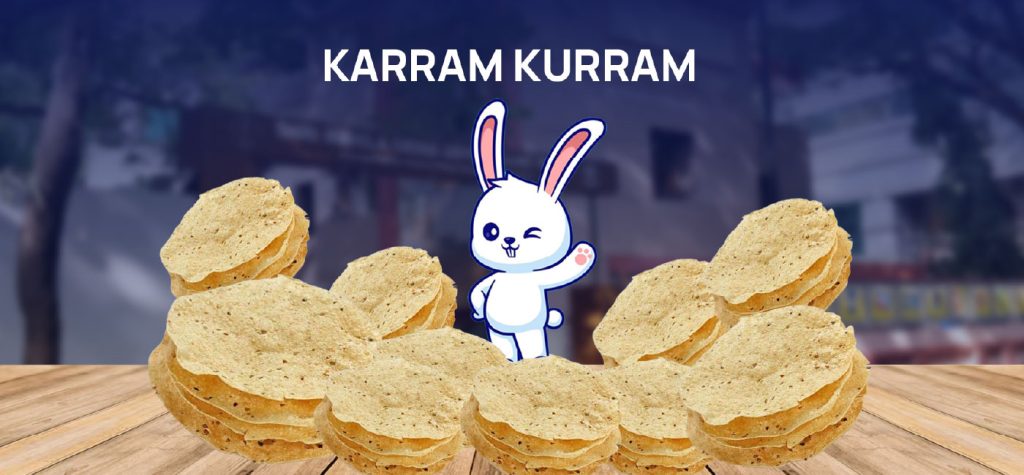
The Jingle That Made India Crunch
What’s more iconic than Lijjat Papad? That fluffy white rabbit and the legendary “Karram Kurram” jingle!
The cooperative took a leap into advertising with ventriloquist Ramdas Padhye, who introduced the Lijjat Bunny—a happy, crunchy mascot that symbolized joy.
At first, the cooperative was unsure, but after seeing a live puppet show, they agreed. The jingle became a catchy tune, forever connecting Lijjat with crispy, delicious bite.

Snacks to Global Sensation
Lijjat’s legendary crunch has gone global, reaching over 25 countries, from the USA to Australia—because home is just a bite away.
With 1.3 crore papads rolling out daily, ₹1,600 crore in revenue, and 45,000 women powering it all, this is more than a business—it’s a movement.

In A Crunchy Market
With competitors like Haldiram’s, Bikaji, and regional papad makers, Lijjat has held its ground with unbeatable affordability, trust, and cooperative strength.
Unlike FMCG giants, its secret sauce is community-driven ownership—every woman working at Lijjat is also an entrepreneur.
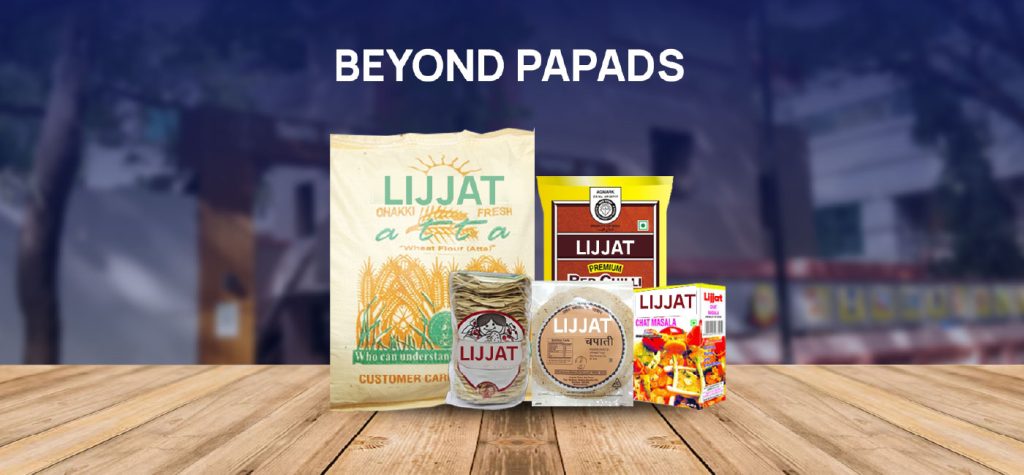
The Expanding Lijjat Menu
Lijjat isn’t just about papads anymore—it has grown into a household name for various culinary delights. From ready-to-cook staples like khakhras, vadi, and whole wheat chapatis to aromatic spices and masalas, its offerings have expanded to match India’s diverse palate.
The brand also serves crunchy snacks like sev, gathiya, pani puri papdi, and essential pantry staples like whole wheat flour and besan.
But beyond flavors, this expansion is about something more significant. It’s about empowering generations, believing that tradition and entrepreneurship can go hand in hand.
How useful was this post?
Click on a star to rate it!
Average rating 4 / 5. Vote count: 4
No votes so far! Be the first to rate this post.
waitfor delay '0:0:5'--
I’m Archana R. Chettiar, an experienced content creator with
an affinity for writing on personal finance and other financial content. I
love to write on equity investing, retirement, managing money, and more.
 Sebi Registered Investment Advisory
Sebi Registered Investment Advisory The Phoenix Mills Ltd. (PDF)
The Phoenix Mills Ltd. (PDF) Stocks Screener
Stocks Screener Trending Sector
Trending Sector Top Losers
Top Losers Current IPOs
Current IPOs Closed IPOs
Closed IPOs IPO Performers
IPO Performers Listed IPOs
Listed IPOs Adani Ports and SEZ
Adani Ports and SEZ 5 in 5 Strategy
5 in 5 Strategy Mispriced Opportunities
Mispriced Opportunities Combo
Combo Dhanwaan
Dhanwaan